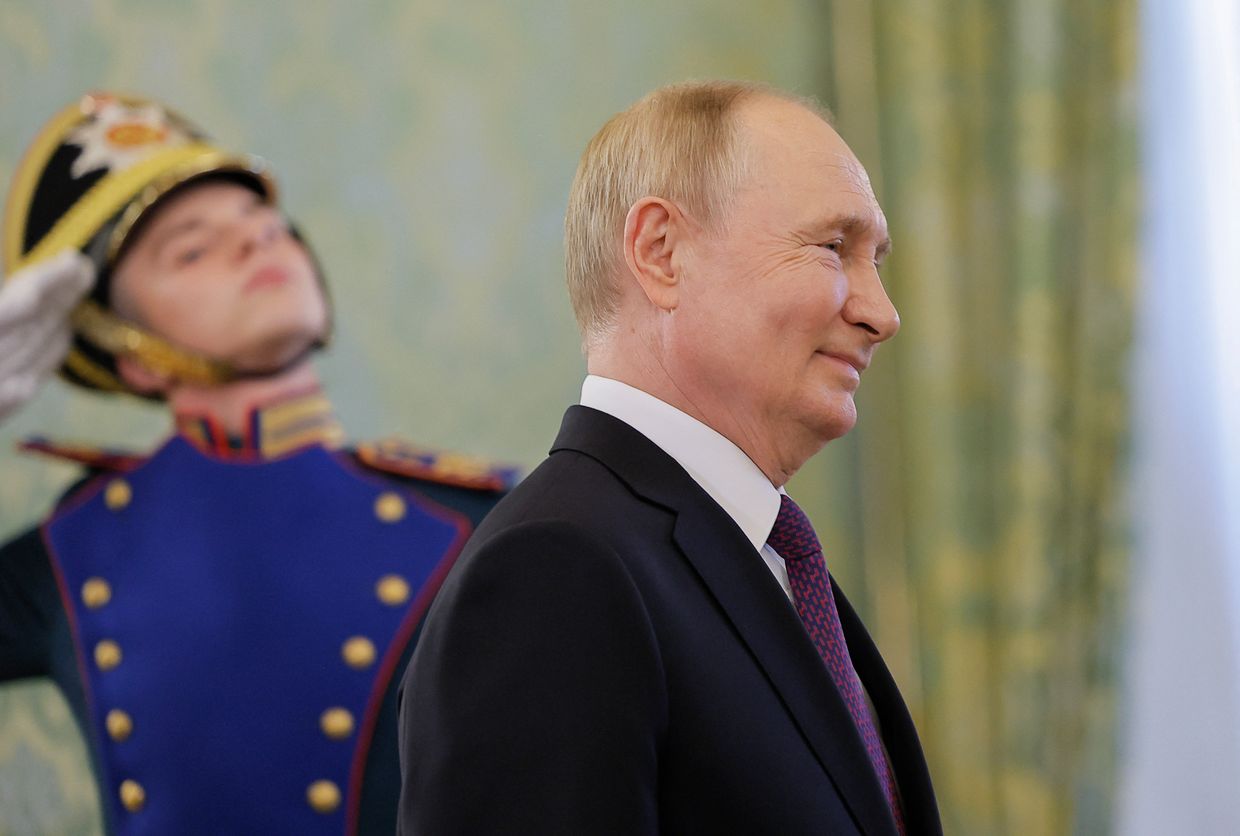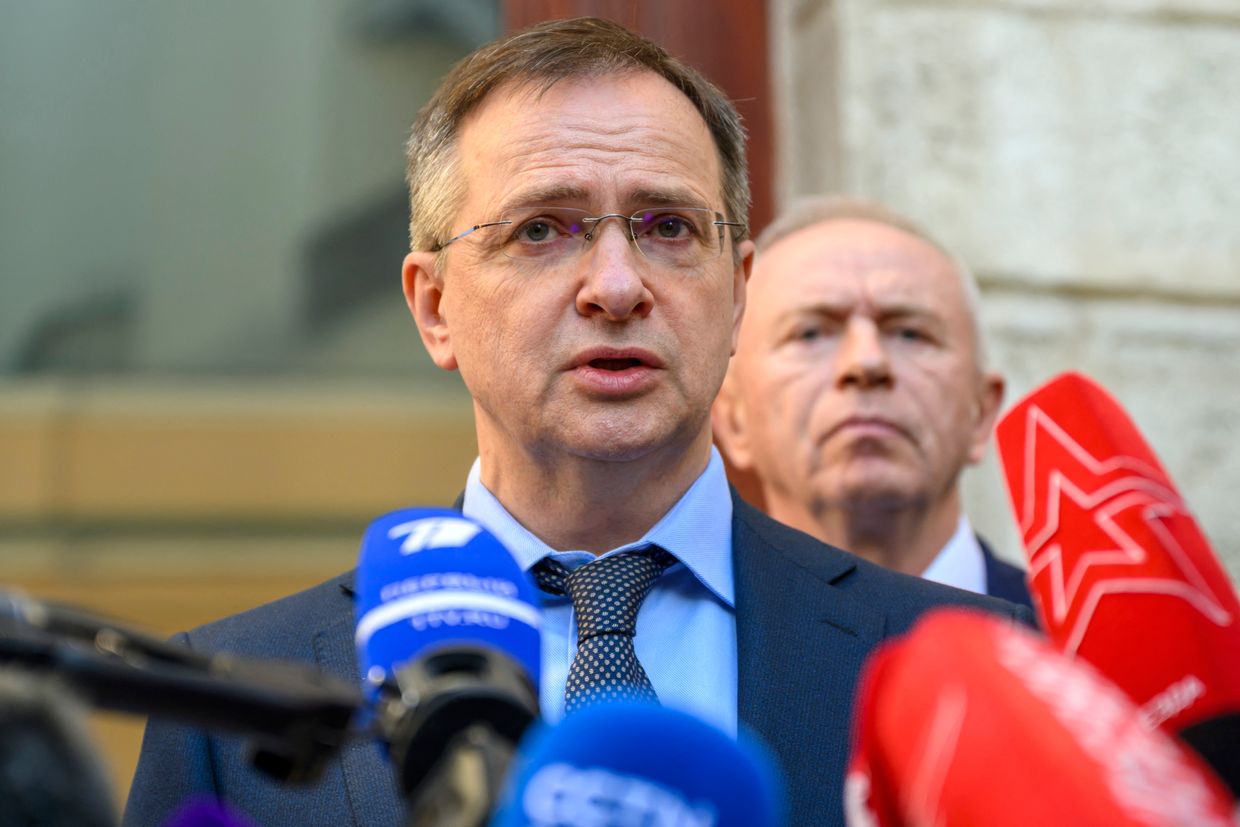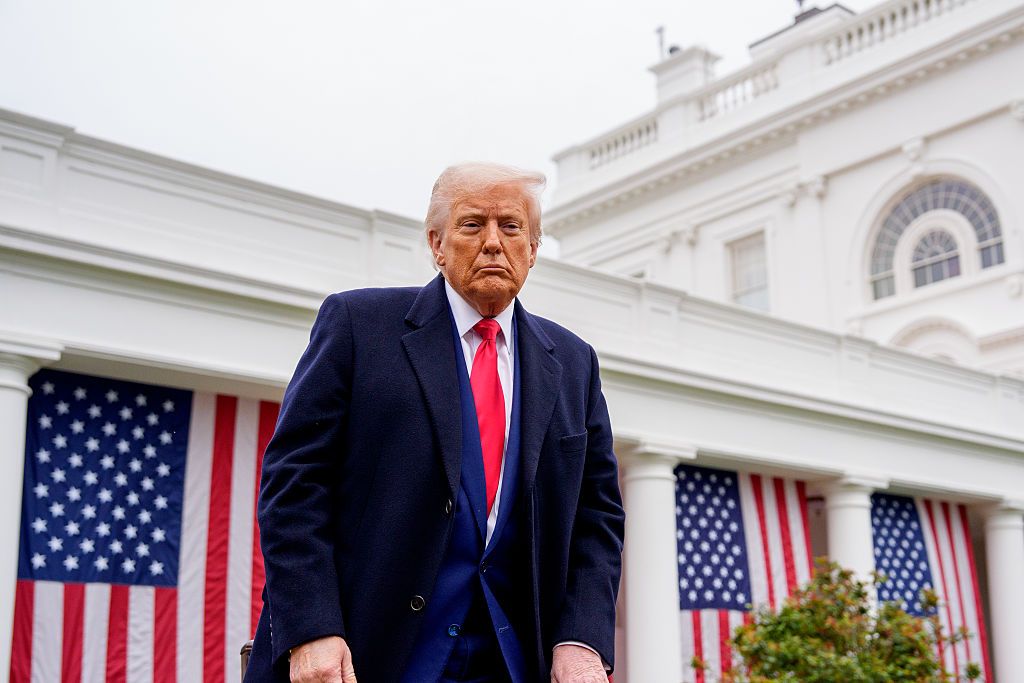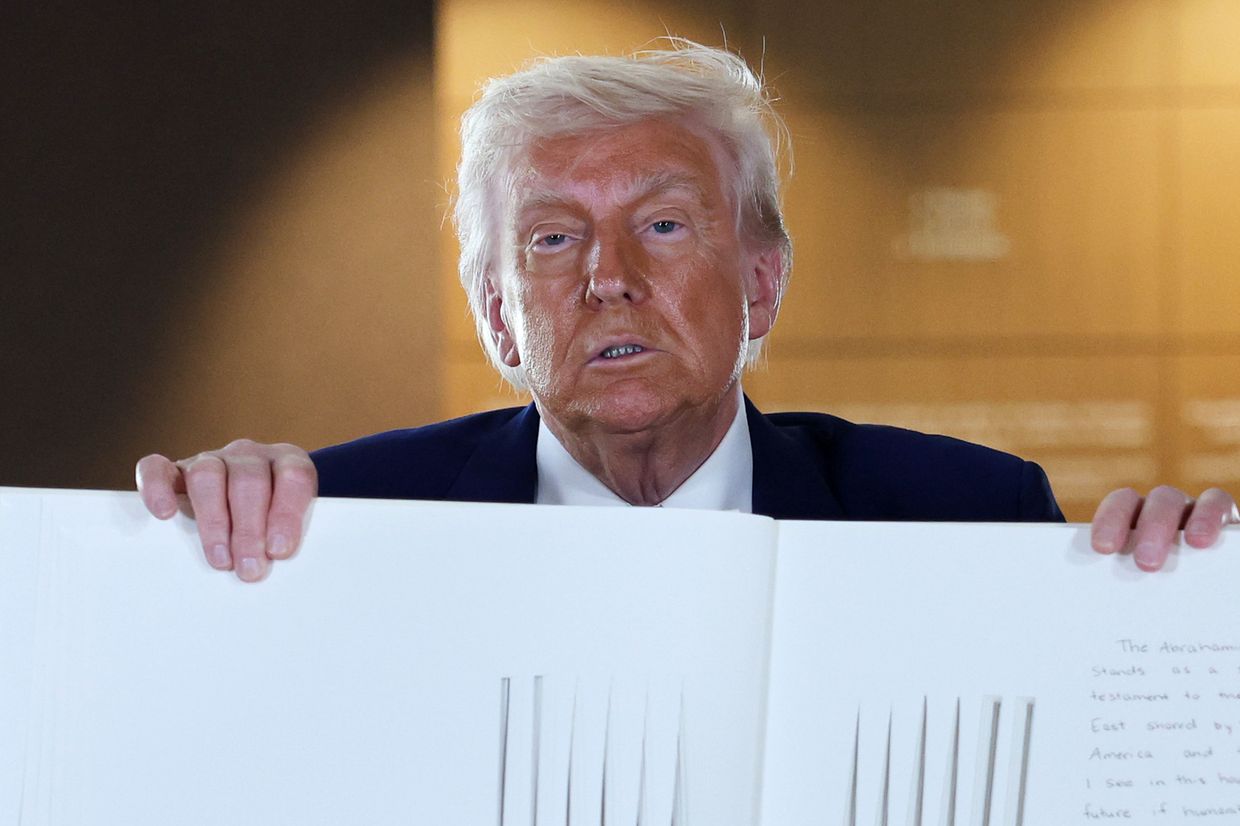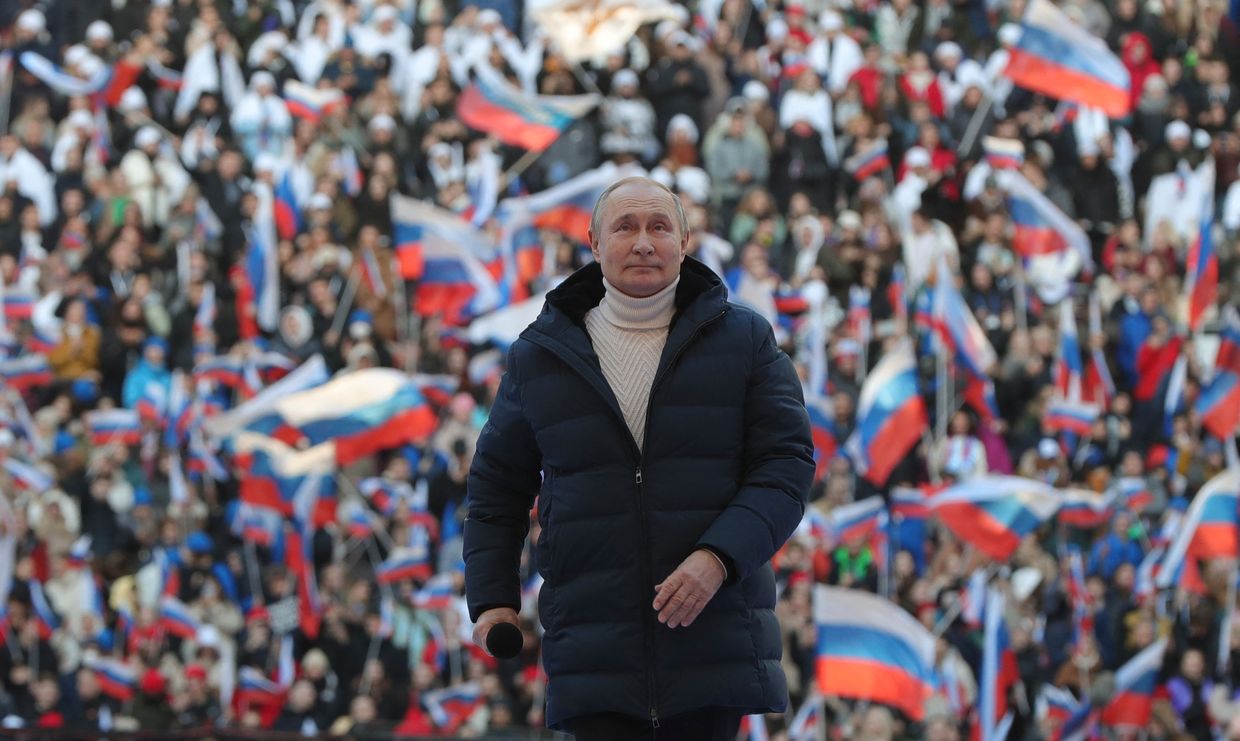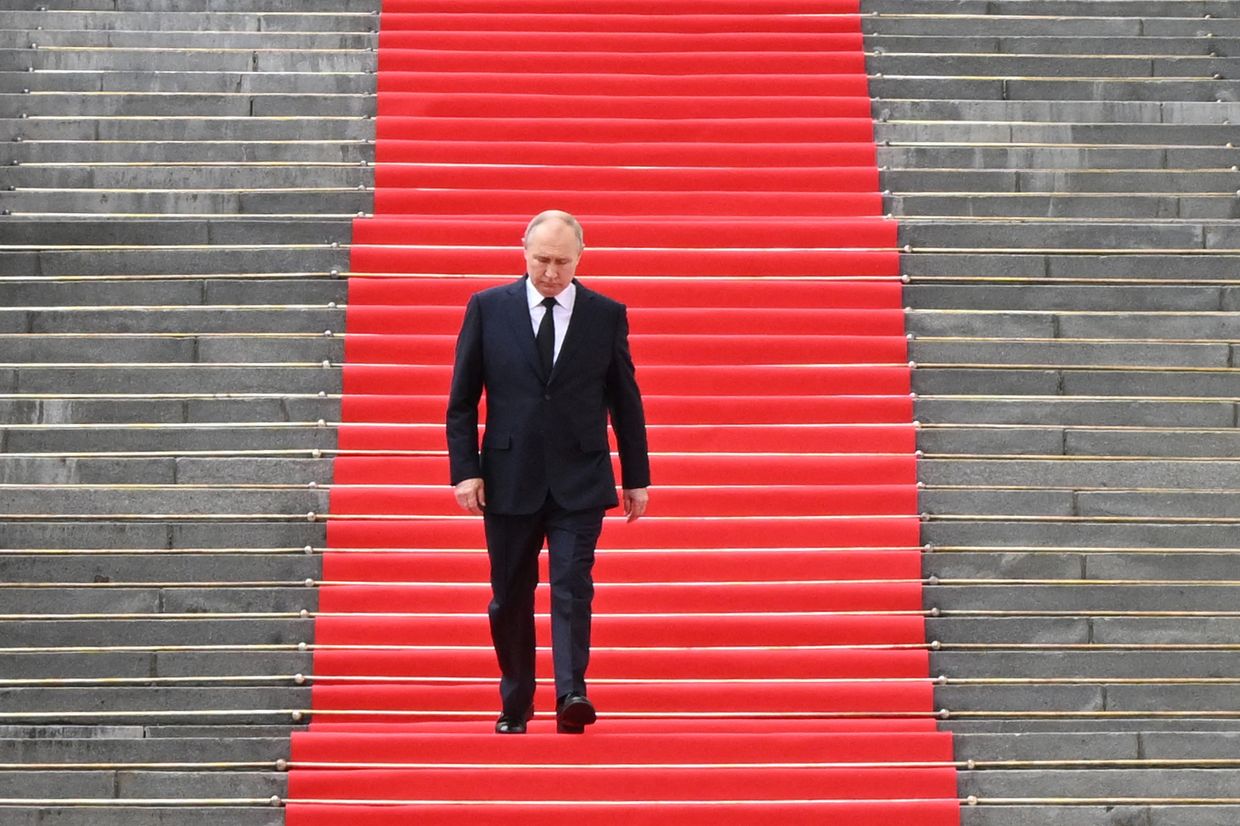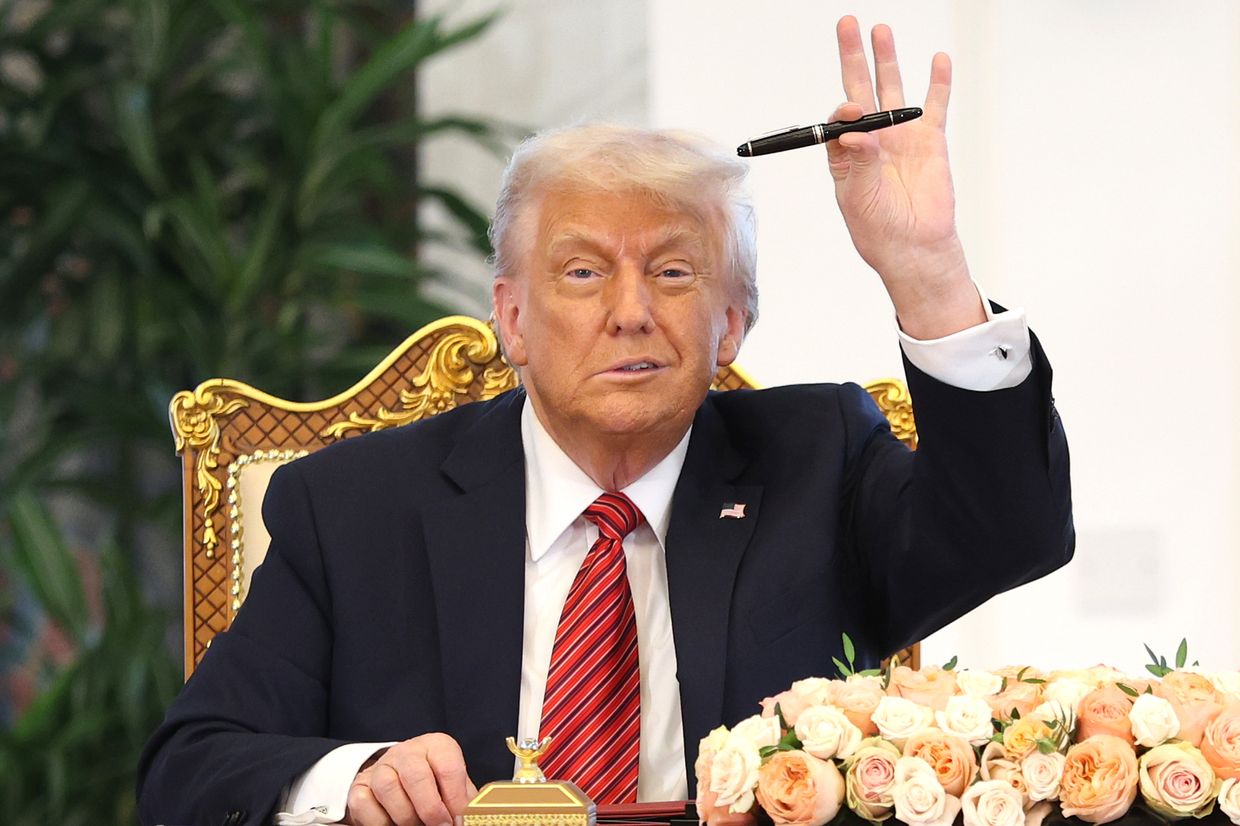Inside Russia, calls for peace come with conditions — and Kremlin talking points

Russian President Vladimir Putin in Moscow, Russia, on April 19, 2024. (Contributor / Getty Images)
Following the second round of direct peace talks with Ukraine, the Russian side leaked its proposal on how to end its war — effectively a demand for Ukraine's surrender.
Yet, if the intentions of the Kremlin are no secret — continue the war until a political or military victory — getting information on what people in Russia think of their country's war and the prospects for peace is a more complicated endeavor.
While those based in Russia interviewed by the Kyiv Independent share a desire for peace, they are no supporters of Ukraine and its sovereignty.
Despite speaking on condition of anonymity and with the ability to freely express their views, Russians inside the country spoke along the official Russian lines — accusing Ukraine of stalling the negotiations or even arguing that there will be no peace as long as Ukraine remains an independent country.
These views are in line with polls conducted in Russia, which some believe are untrustworthy.
Around 64% of the respondents in Russia favored peace talks, according to a poll by the independent Russian pollster Levada Center published on June 2.
However, a majority of respondents (73%) believe that Ukraine should make concessions prior to a ceasefire. Only 18% think that Moscow should agree to a ceasefire and then resolve all other issues.
Soviet nostalgia
The Kyiv Independent interviewed people with different backgrounds and views, including those who have a track record of being opposed to Russian President Vladimir Putin's regime. They spoke on condition of anonymity for fear of reprisals.
One of them, a 40-year-old photographer, used to attend rallies against Putin.
Yet the photographer's past opposition to Putin did not make her a supporter of Ukraine, nor did it mean she acknowledged her country's faults. In a conversation with the Kyiv Independent, the photographer expressed nostalgia for the Soviet Union and said that she believes there will be no peace until former Soviet republics are reunited under the Kremlin's wing.
"Russia, Ukraine, and Belarus would unite into one country," she said. "And then there would be no more problems. And all the foreign agents would get kicked out."
She also argued that "recognizing all the (occupied) territories as part of Russia is a done deal."
Russia illegally annexed Ukraine's Crimea peninsula in 2014. The Kremlin also announced the illegal annexation of Ukraine's Kherson, Zaporizhzhia, Donetsk, and Luhansk oblasts in 2022 despite only partially controlling them.


According to a document leaked after the second round of talks with Ukraine, Russia is demanding the official recognition of all these annexations.
Additional demands include Ukraine's neutral status, a ban on the country's NATO bid and other possible military alliances, and an official end to Western arms supplies and intelligence sharing with Ukraine.
According to a source in the Ukrainian President's Office, the Russian delegation effectively showed it doesn't want a peace settlement and is simply buying time to prolong the war.
President Volodymyr Zelensky has repeatedly stated that Kyiv would not recognize any of the occupied territories as Russian.
Blaming Ukraine
Unlike the photographer, a Russian official who previously worked with Putin's aide Vladimir Medinsky, the head of the Russian delegation during the Istanbul talks, was more ambivalent.
He opposed Russia's full-scale invasion of Ukraine in 2022 but has grown more skeptical of Kyiv's position since then and accused Ukraine of stalling the negotiations.
The official shared his personal opinion. He is not connected to the actual talks.
He told the Kyiv Independent that "any negotiations are a good thing."
"It's a step forward," he said. "It's better than a demonstrative refusal to negotiate. I agree with (U.S. President Donald) Trump that people shouldn't be dying. Enough already."
He argued, however, that an unconditional ceasefire is currently "technically and politically impossible" because it would be to "Ukraine's advantage."
He accused Ukraine of disrupting the talks, saying that it had not sent a proper negotiating team to Istanbul. Ukraine has sent a delegation headed by Defense Minister Rustem Umerov to Istanbul, while Russia has sent a low-level delegation headed by Medinsky.
The official claimed that Ukraine "got carried away and deceived itself with their own propaganda" and "put too much faith in their (Western) partners," the points often mentioned by Russian state TV.

Putin did not attend the Istanbul peace talks despite an invitation from Zelensky to meet him face-to-face. Ukrainian and Western observers have argued that Russia is disrupting the peace negotiations.
The official, who used to work with Medinsky in a field unrelated to negotiations, went on to praise him as a manager and negotiator.
A pessimistic forecast
An IT specialist living in Russia offered a third perspective, blaming neither Moscow nor Kyiv for the war.
"My attitude toward political events is similar to how I view developments on financial markets... or even like the weather," he told the Kyiv Independent. "In my worldview, what happens in all these spheres is the result of a sufficiently large number of actors and factors... rather than the result of malice, stupidity, or genius on the part of specific individuals."
He said he would be calm about any outcome of the peace talks.
The IT professional told the Kyiv Independent, however, that the war had had a negative impact on his life from a practical standpoint: salaries in the IT sector have dropped, there are fewer job opportunities, and there are major difficulties with accepting payments from abroad.
He also said that financially he can afford not to work but has to have a permanent job to defer potential mobilization.
"But in my view, neither peace nor a ceasefire in Ukraine would actually resolve any of the above problems," he said. "Once this episode of the confrontation ends, another one will just begin."
He added that "the key indicator of readiness to end the confrontation is the willingness of all parties to agree on the legal status of the disputed territories."
"We're nowhere near that," he continued.
Russians outside Russia: 'No peace until Putin is out'
In contrast with those based in Russia, Russian political exiles living abroad put the blame squarely on Putin, although they did not blame the Russian people in general for continuing to wage it.
"(Putin is) continuing the war while dragging out these endless negotiations — talks about talks, meetings for the sake of more meetings — hiding everything behind vague, meaningless language, all while keeping the war going," Russian opposition politician Vladimir Kara-Murza told the Kyiv Independent.
Kara-Murza survived poisoning attempts by Russia's Federal Security Service in 2015 and 2021, according to Bellingcat, Der Spiegel, and The Insider.
He was jailed in Russia in 2023 for criticizing Russia's invasion of Ukraine and released and sent abroad in 2024 as part of a prisoner exchange with the West.
Kara-Murza also said that "Putin is playing Trump brilliantly — because if you just listen to the tone of Trump's statement, it was filled with admiration and enthusiasm after a conversation that, once again, was absolutely meaningless in substance."

He was referring to Trump's statement after a phone call with Putin on May 19, during which the Russian president again rejected an unconditional ceasefire. Trump said the call "went very well" and once again refused to impose sanctions against Russia.
Kara-Murza argued that Trump and Putin get along because "they have the same kind of authoritarian mindset, they share the same psychological profile."
"I think Trump really wanted to rule the way Putin does — without checks and balances, without a parliament, without opposition, without an independent press," he added. "Even people who were present at their meetings during his first term have said that Trump, in Putin's presence, was like a rabbit staring at a boa constrictor. So I think Trump genuinely admires Putin — personally and sincerely — and wants to be like him."
Kara-Murza is skeptical about the prospects for peace under Putin.
"I'm convinced that no lasting, long-term — let alone just — peace can exist or will exist as long as Putin's regime remains in power," Kara-Murza said.
He said that "the only real way to stop this war is a democratic Russia."
"Only when Russia has a normal, legitimate, freely elected government that respects its own laws and the rights of its own citizens will it begin to respect civilized norms of international behavior and return to its internationally recognized borders," Kara-Murza added.
In contrast with Kara-Murza, Russians inside the country who spoke on condition of anonymity were more ambivalent about Putin's role, often blaming Ukraine or both sides.
At the same time, Kara-Murza does not extend the blame for the war to Russia as a whole. In 2024, he criticized the sanctions imposed against Russia, saying that only individual sanctions against Putin's inner circle were appropriate.
Ukraine's victory is 'the only real peace'
Another Russian opposition figure, former World Chess Champion Garry Kasparov, is on the far end of the spectrum — he is one of the few Russians who unequivocally support sanctions against Russia and call for Ukraine's victory.
He told the Kyiv Independent that "Putin wants to use negotiations to buy time, to normalize his status as a legitimate leader instead of an invading war criminal, and to distract and sideline Ukraine's allies from taking stronger action against Russia."
"Putin's impossible demands have not changed," he added. "He's not offering any concessions, and Trump isn't asking Russia to make any. Despite Putin ignoring European and American deadlines for a ceasefire, the only pressure Trump applies is against Ukraine."
Kasparov also said that "until there is real pressure via military aid to Ukraine and crippling sanctions on Russia… Putin will have no interest in ending the war."
"As I have said from the start, the only real peace is Ukrainian victory," he added.

Kasparov said that Trump "is working together with Putin to pressure Ukraine into surrendering so he can claim to be a peacemaker."
"Trump gave a deadline (for a ceasefire), Putin ignored it," he added. "In their phone call, Putin spouted a bunch of garbage about plans and frameworks, and Trump just said it was all fine."
Putin' is playing for time'
Arkady Moshes, a Russian-born researcher at the Finnish Institute of International Affairs, argued that "there is nothing to talk about" as far as Russian-Ukrainian talks are concerned.
"(Russia) is playing for time," he said. "They only agreed to imitate their participation in the negotiations because America wanted it. They want to give Trump a chance to say to his audience that he has already brokered something."
He also said that Putin "is interested in continuing the warfare."
"He's still driven by the thinking that Russia has material advantages over Ukraine," Moshes added. "So Putin still plays for victory and not a draw."
He said Russia's maximalist demands and unwillingness to compromise show that it is not interested in peace.
"This is the plan, that you come to the talks, put forward maximalist demands, and then blame the other side for not agreeing," Moshes added.

After deadly Russian missile and drone attacks in May, Trump expressed strong disapproval of the latest escalation.
"I'm not happy with Putin," he told reporters on May 25, adding on Truth Social that the Russian president has gone "absolutely" crazy.
So Trump "faced the wall" and "had to make choices" — either to impose sanctions on Russia or not, Moshes said.
But instead of actually imposing sanctions, Trump just threatened to do so without taking any action, he added.
"Putin is not afraid of these kinds of threats," Moshes said. "He would be afraid of sanctions, but not of threat of sanctions."

